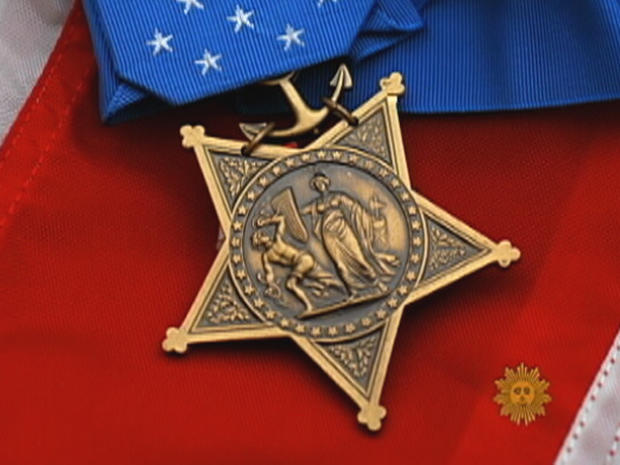Reporting on the Medal of Honor
It is probably safe to say that most Americans don't know the difference between a Bronze Star and a Silver Star, the Distinguished Service Cross and the Navy Cross.
But everybody knows what the Medal of Honor is — the nation's highest award, for valor above and beyond the call of duty.
When you say it that way — the nation's highest award — it sounds like a prize, like an Olympic gold medal. What I found out in the course of doing this story is that nobody "wins" the Medal of Honor. You "receive" it for doing your job under extraordinary circumstances.
Paul Bucha received it as a company commander in Vietnam. Here's how he describes its meaning:
"It means that you received recognition for what you and the men and women you had the privilege of serving with accomplished. At the end of the day it's an individual award, but no one is just out by themselves. . . They're there with a unit they are a member of or in command of. . . so it's a recognition, and among military people it's the highest recognition that you can get for conduct . . . that others consider to be extraordinary, and I emphasize 'others consider to be extraordinary' because . . . I doubt that there's one Medal of Honor recipient who would say he was doing anything other than his job."
People see him as a hero; Bucha thinks of himself as undeserving of the Medal because 10 men in his company were killed.
"I didn't and I still don't believe I deserve the Medal of Honor," he said. "I have ten men . . . who promised me they would trust me. In exchange I promised I would bring them home. I didn't . . . The memory of those young men who trusted me just takes something off when someone stands up and claps. I just — I failed in that basic contract I entered into."
Bucha was one of 247 Americans to receive the Medal of Honor for duty above and beyond the call in the Vietnam War. So far in the 10 years of Iraq and Afghanistan only eight have received it. That is a gap which can't be explained simply by saying, "Well, they were very different wars."
John Wheeler, a Vietnam vet and one of the movers and shakers behind the Vietnam Wall, has done a study which tries to take into account the differences. You can argue with his methodology (and the Pentagon does), but in the end you can't argue with his point: "The gap is so big it speaks for itself."
As part of our report for "CBS Sunday Morning" (which you can watch by clicking on the video player below), we examined the case of Sgt. Rafael Peralta, a Marine who was nominated for a posthumous Medal of Honor in Iraq. I won't recount it here. You need to hear it from a Marine who was there and whom we interviewed for the story. To my mind, it goes a long way toward explaining the gap.
So why should we care that so few Medals of Honor have been awarded for Iraq and Afghanistan? Listen to Bucha: "We need Medal of Honor recipients. It is important to the nation. It's important even more to the troops who participate in the war. It's not only a validation but a recognition, that among this group of soldiers . . . there have been deeds and acts which are above and beyond the call of duty."
For more info:
Congressional Medal of Honor Society
Congressional Medal of Honor Foundation
"Medals of Honor: A Growing Recognition Gap" (Second Line of Defense)

